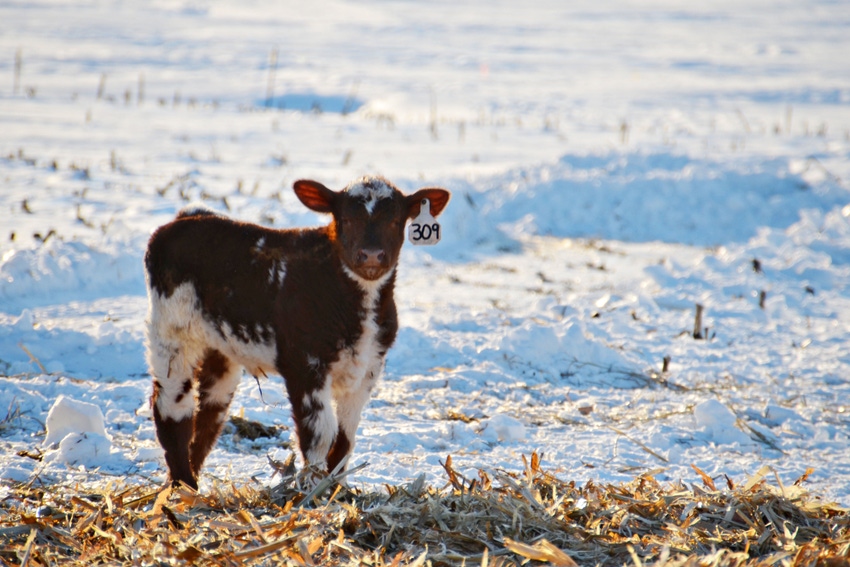Should you vaccinate very young calves?
While research shows some benefit to vaccinating very young calves, it’s usually best to wait a while, even in calves that were shorted on colostrum.
January 26, 2017

“In the 2-week old calf, there are two things you need to be concerned about. One is age, the other is colostrum intake. Typically, even in a calf that got no colostrum [and no maternal antibodies to interfere with building its own immunity], the response for making antibodies [when vaccinated early] is not great under 3 weeks of age. If they have higher levels of maternal antibodies than the older calves, they also may not respond [to vaccination],” says Chris Chase, Department of Veterinary and Biomedical Sciences, South Dakota State University.
“We did a study in very young calves [2 or 3 days of age]. We vaccinated them at that age, then came back seven months later [weaning time] and challenged them. From a statistical standpoint it worked, but from a production standpoint I don’t think producers would be very excited about it because in the control group, 80% of them got sick [when challenged] and in the vaccinated group, 20% of them got sick. If a person waits until those calves are 3 to 4 weeks of age, less than 5% of the vaccinates would get sick,” he explains.
“Age at vaccination is a big factor, but it all goes back to individual situations. If someone is having trouble with summer pneumonia, we’d have to say the vaccine at a young age [several weeks old] probably doesn’t hurt them, but how much good it actually does those calves may be minimal.”
“Then it goes back to colostral intake and whether it was low, and we still have the issue that they are young when you are giving the vaccine. A person can work with their own herd health veterinarian and take a look at what is going on in their particular situation, and figure out what to be most concerned about,” Chase says.
However, young calves sometimes develop clostridial infections (enterotoxemia) that are not resolved with commonly-used vaccines. Calves may succumb to acute toxic gut problems caused by Clostridium perfringens type A or E, rather than C or D, which are included in many 7 or 8-way clostricial vaccines. The calves or their dams have been vaccinated, but calves are still dying. In this situation a producer may need help from the veterinarian to figure it out.
“Then you will probably be looking at an autogenous vaccine (created from pathogen samples from your own herd),” says Chase.
About the Author(s)
You May Also Like



